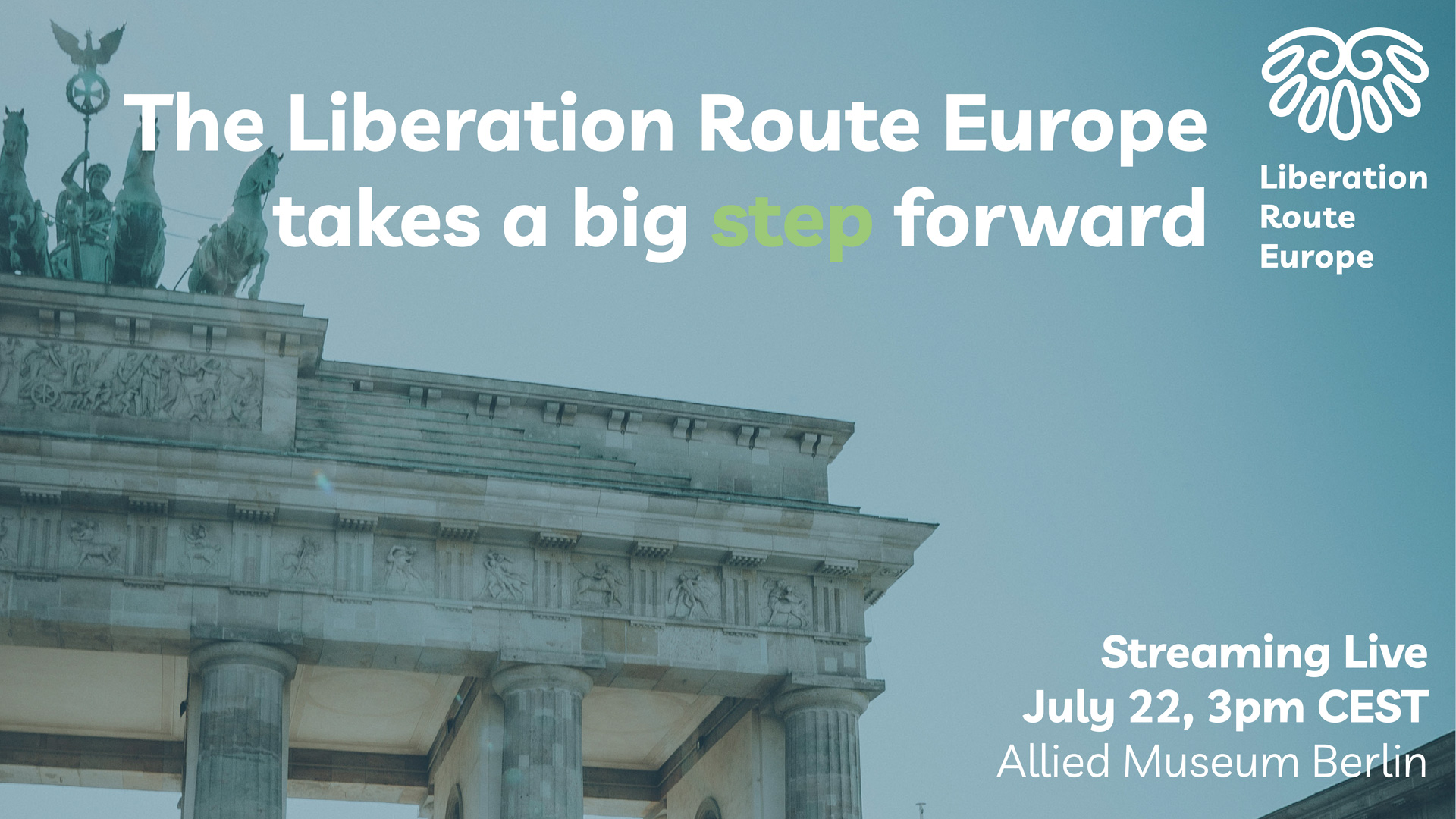The LRE Foundation is happy to announce the next evolution of the Liberation Route Europe, a certified Council of Europe Cultural Route connecting places and people that mark Europe’s liberation from occupation during World War II. The launch event will take place on 22 July at 3 pm CEST when the Foundation will present the brand new European-wide system of hiking trails along the Liberation Route Europe at the Allied Museum in Berlin.
Developed in collaboration with hiking associations across Europe, the new hiking trails link museums, memorials, cemeteries and historical sites along the Allied Forces’ advance in the last phase of WWII and aim to stretch for 10.000 km. The hiking experience is accompanied by the new Liberation Route Europe website and travel planner that allows the public to read and listen to many stories about WWII and plan their journey along the hiking trails.
Rémi Praud, Managing Director of the LRE Foundation: “We are excited to launch this new system of hiking trails connecting regions, sites and historical places across Europe. These trails are a new meaningful, and sustainable way to experience the Liberation Route Europe. This is only the beginning. We are excited to expand to new regions and countries in the upcoming years.”
On the morning of 22 July, the LRE Foundation, in collaboration with the Best Defense Foundation, will escort seven U.S. veterans who served in Germany in 1945 for a visit with the press to the German-Russian Museum Berlin-Karlshorst. In the afternoon, the veterans and invited guests will visit the Allied Museum. They will stay for the online event to mark the international launch of the Liberation Route Europe hiking trails that will take place at 3 pm CEST. The event will be streamed live from the Allied Museum across the LRE Foundation’s social media channels for the international press and public to join online.
Both these museums have a strong historical and cultural value and are key actors in the development of the Liberation Route Europe in Germany.
- The German-Russian Museum Berlin-Karlshorst is located at the site of the unconditional surrender of Germany on 8 May 1945 in Berlin-Karlshorst, marking the end of the Second World War in Europe. Today it is a place where two former wartime enemies jointly recall some of their common, albeit very violent, history.
- The Allied Museum honours the commitment of the Western Powers in defending West-Berlin ́s Freedom. It shows how enemies became friends, and international cooperation and alliances safeguarded peace, democracy and freedom. It focuses on the history of divided Berlin within the history of divided Germany and the Cold War.
